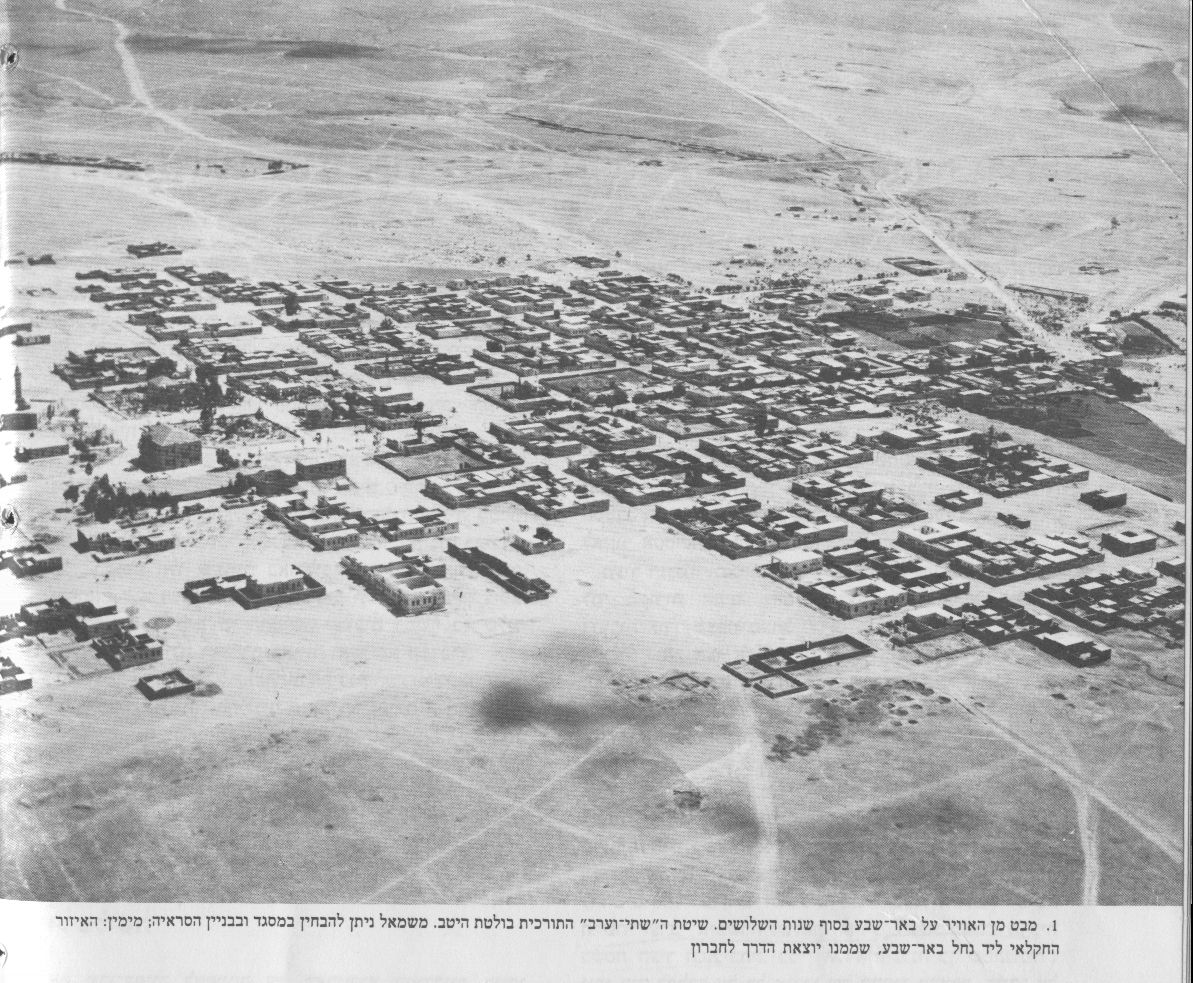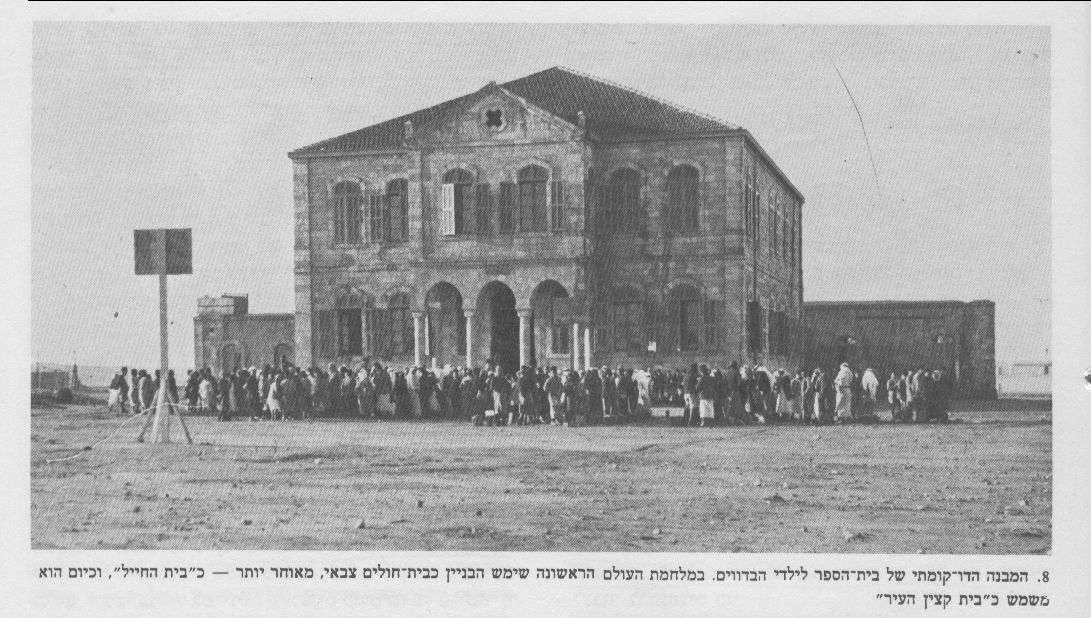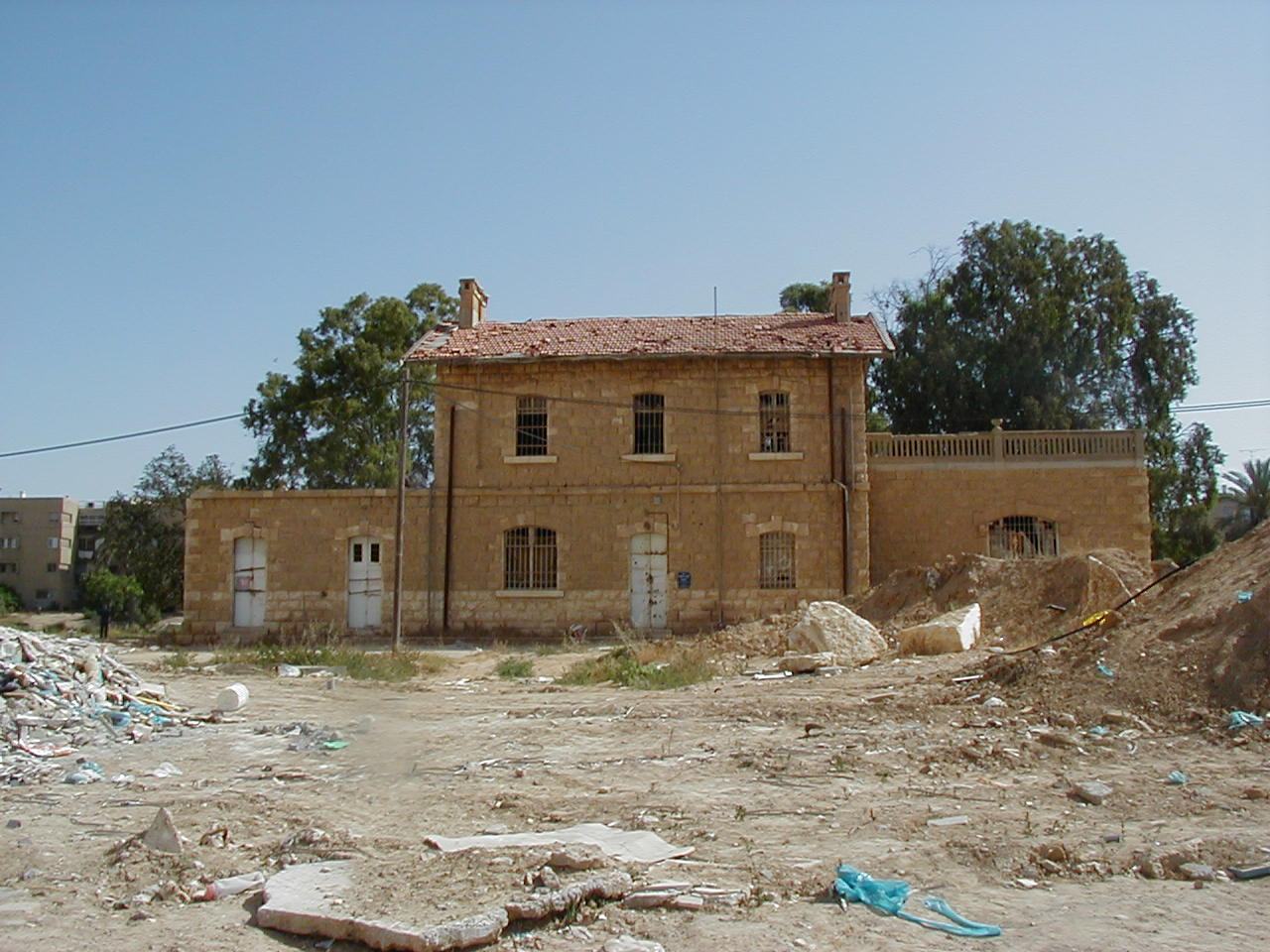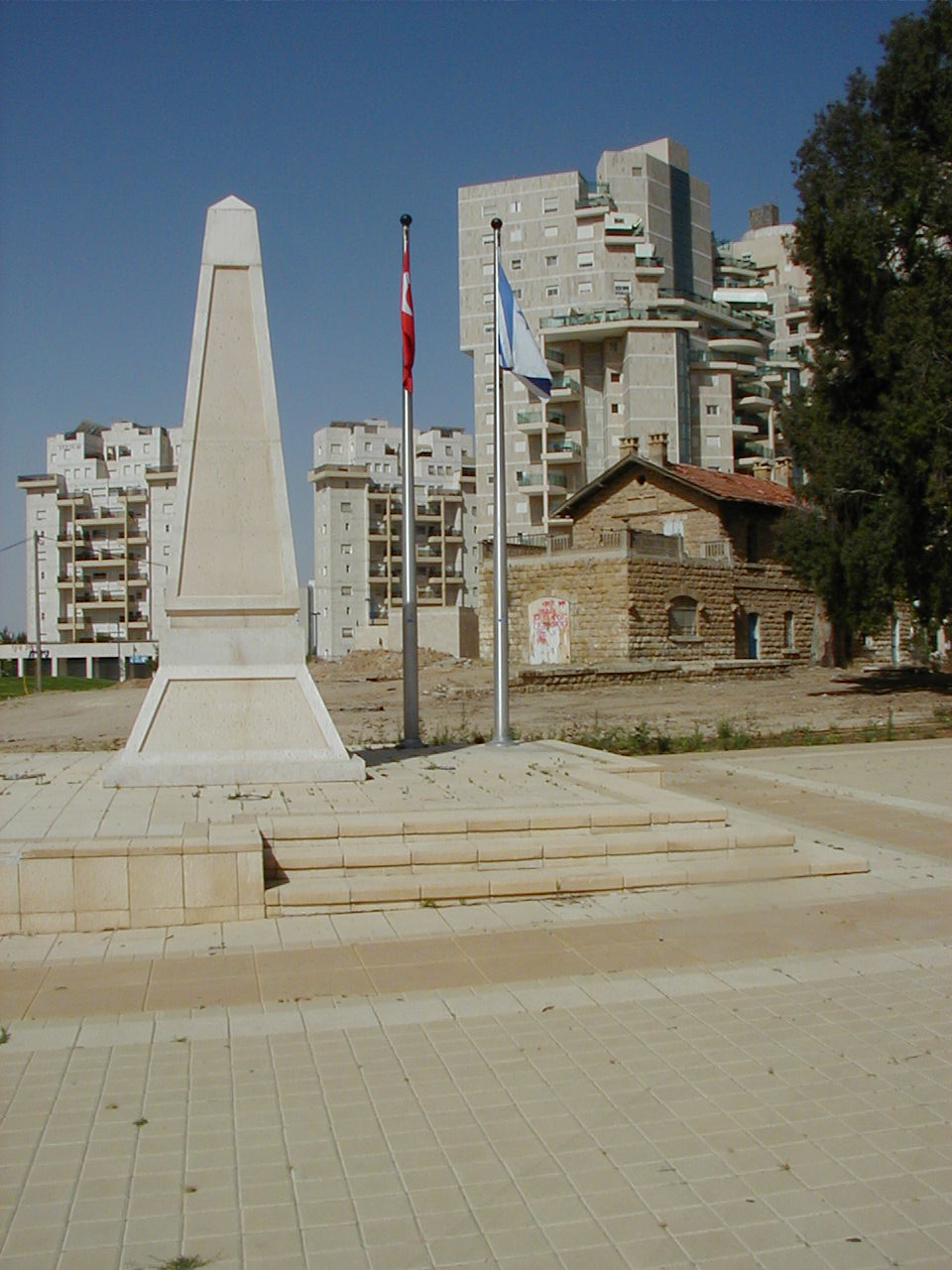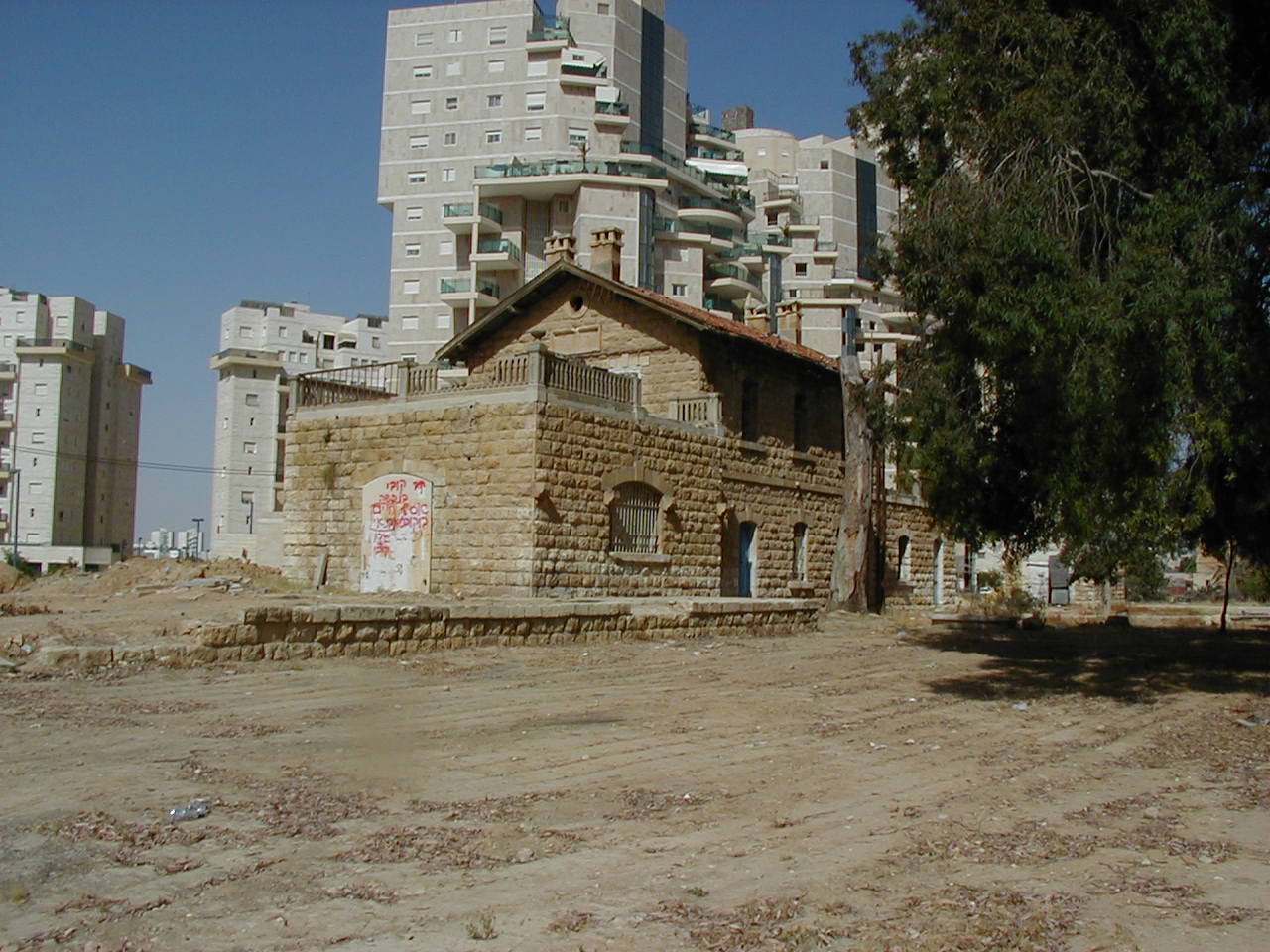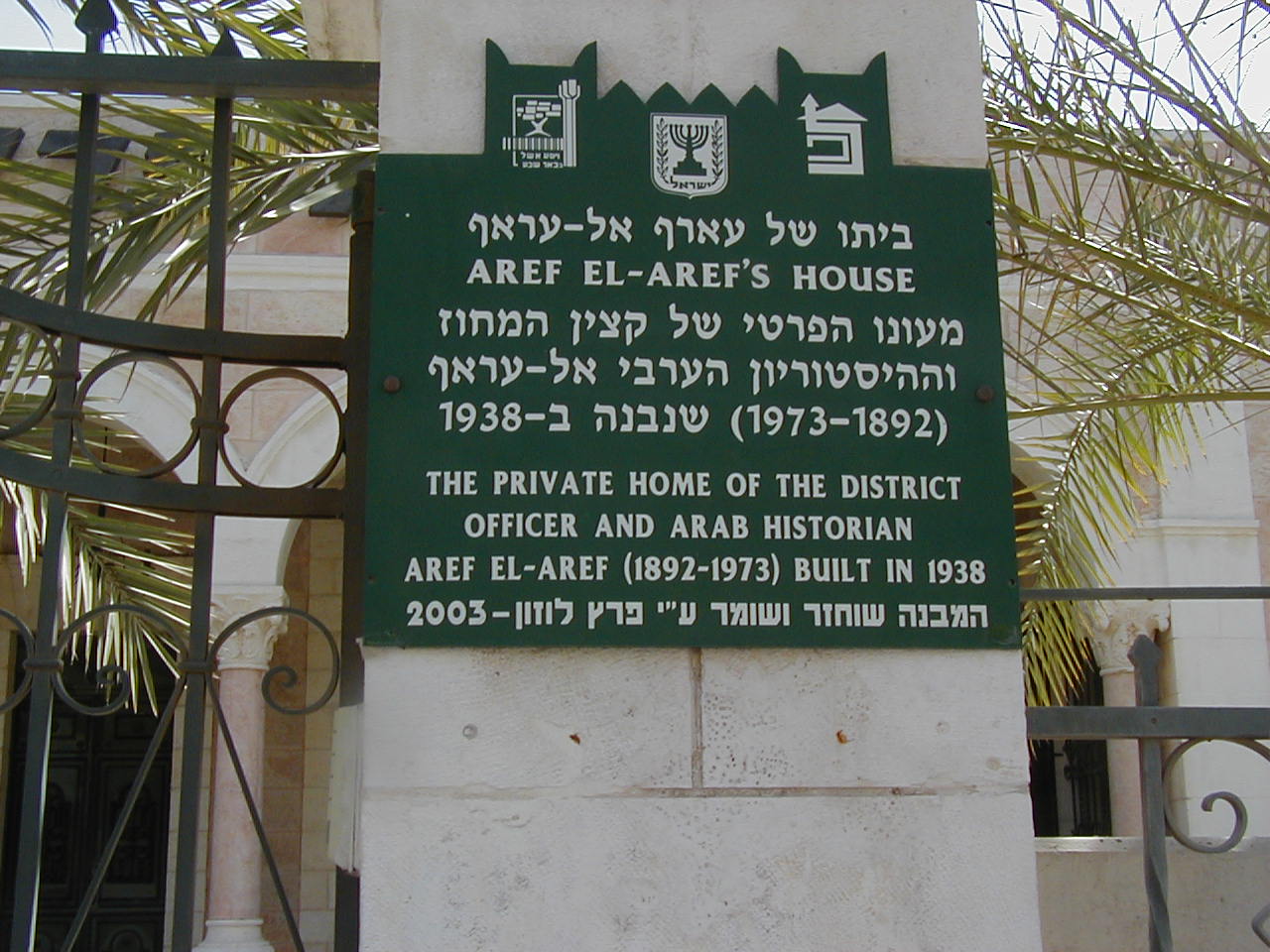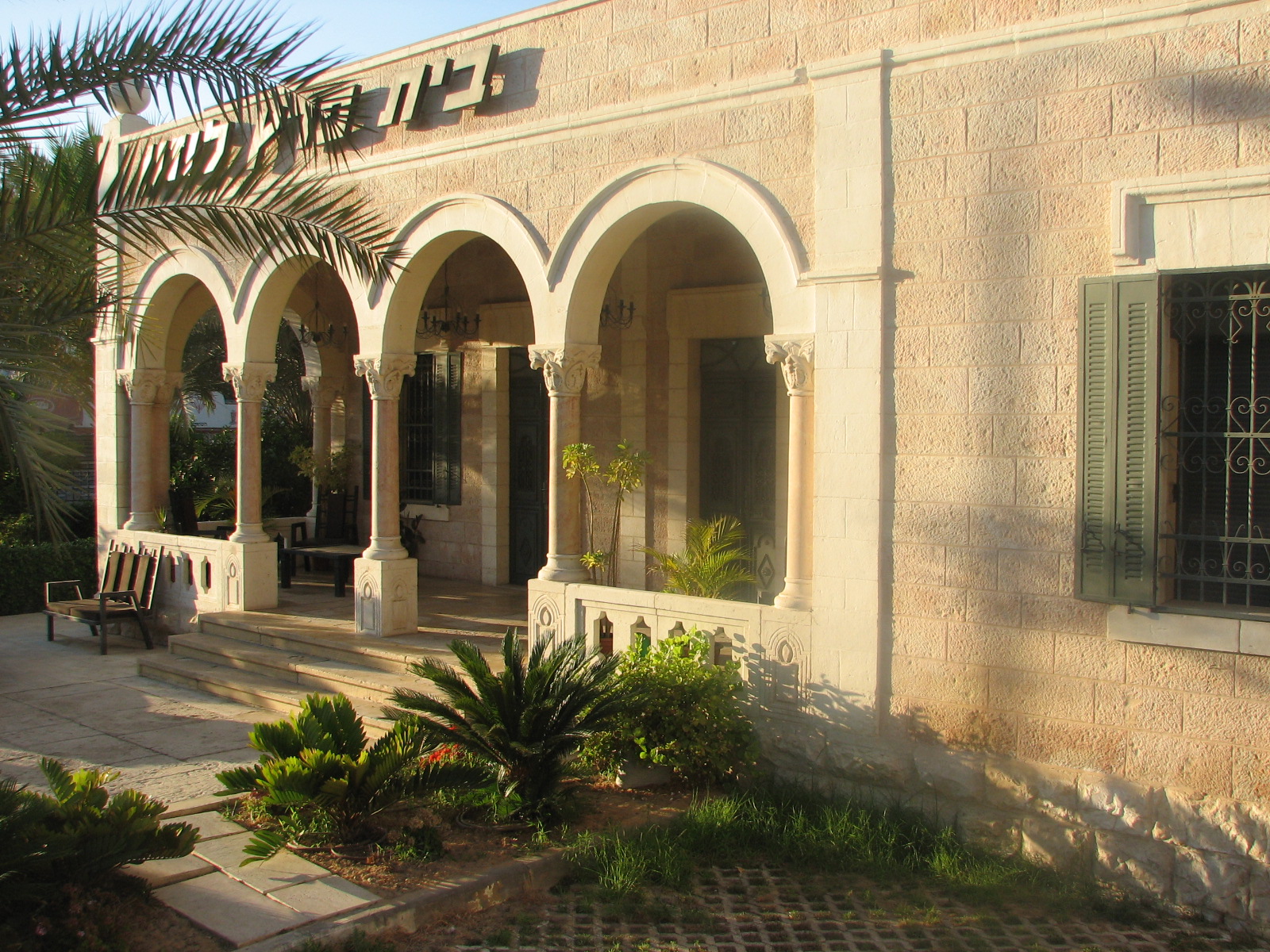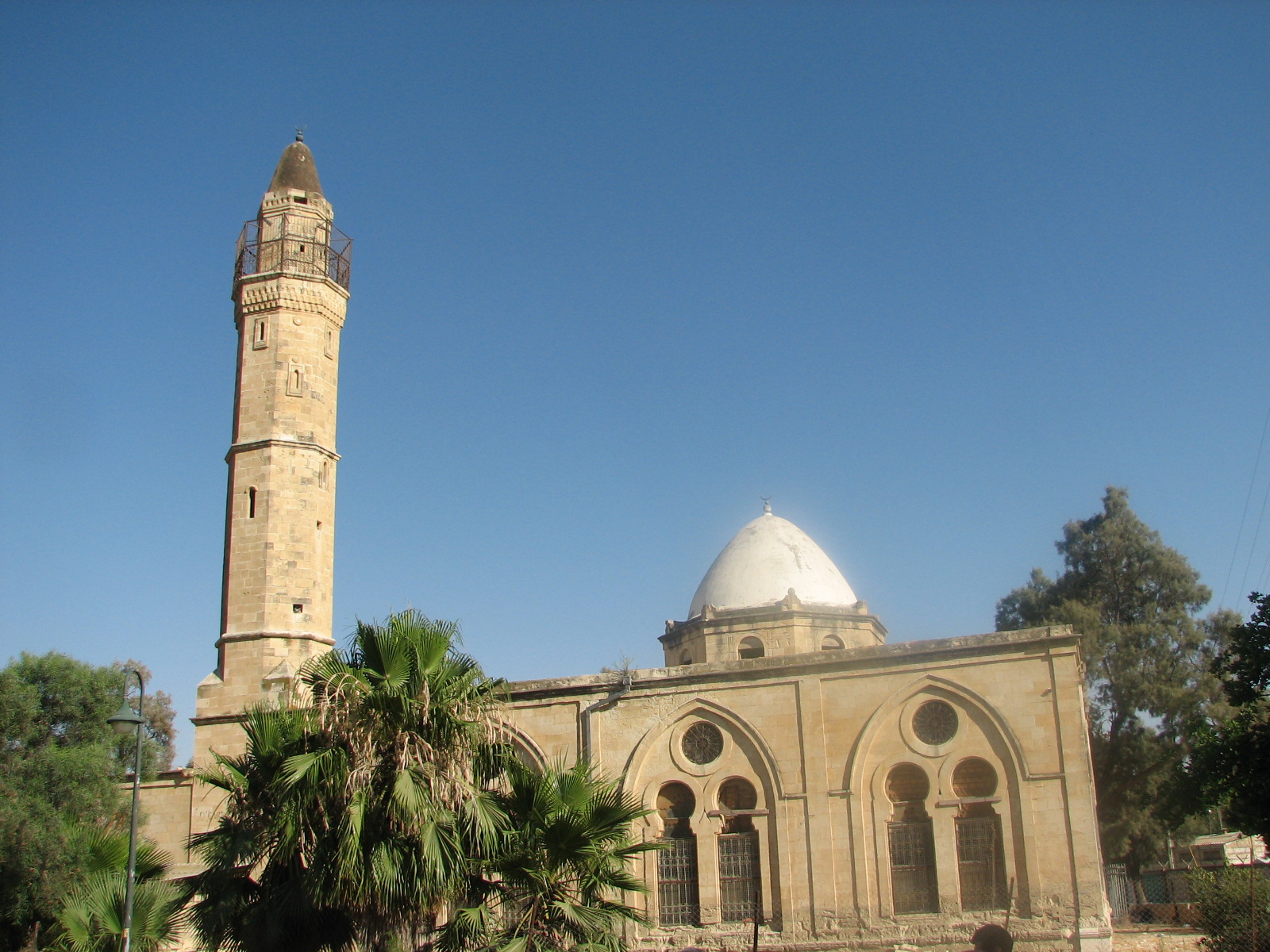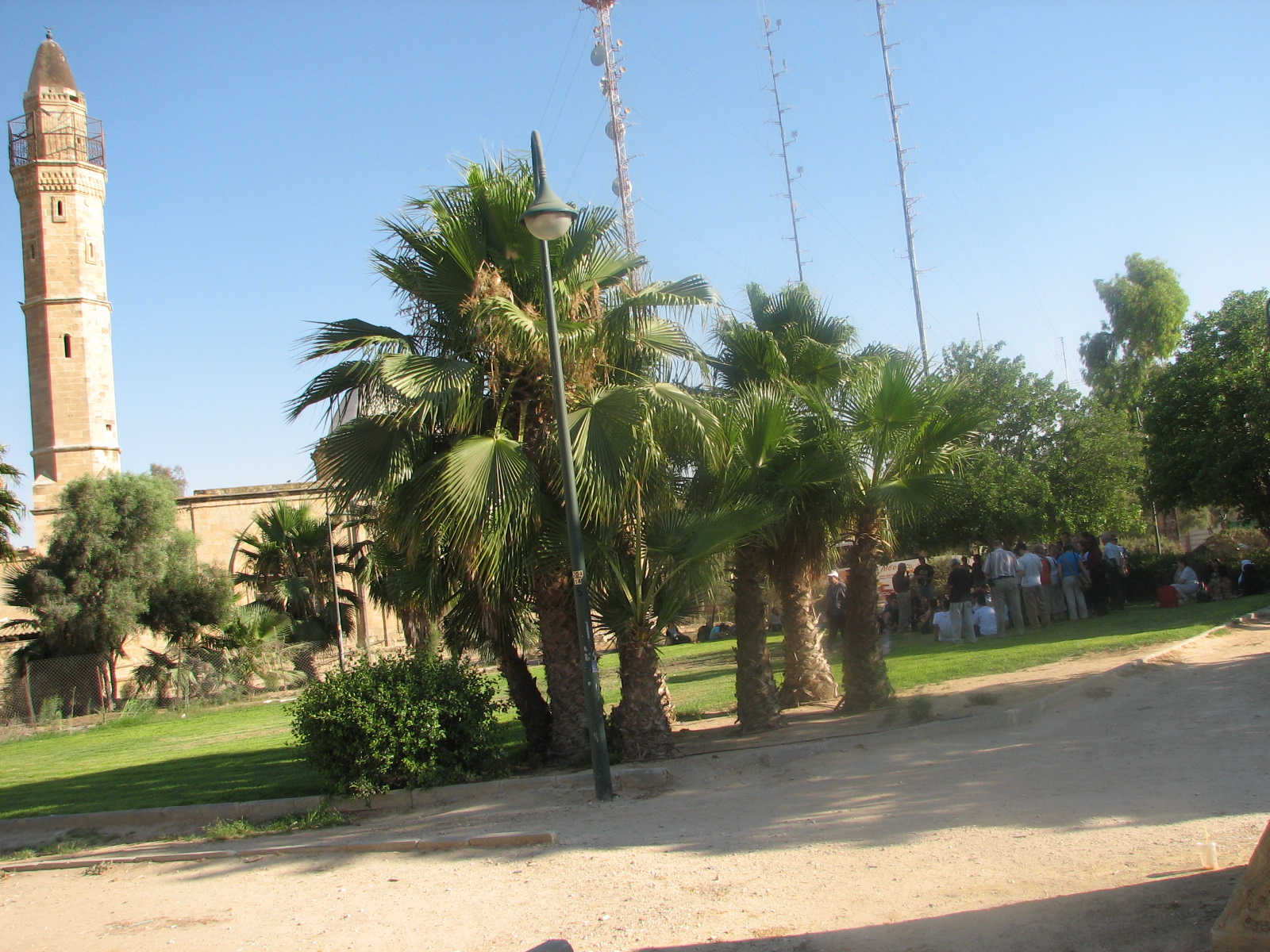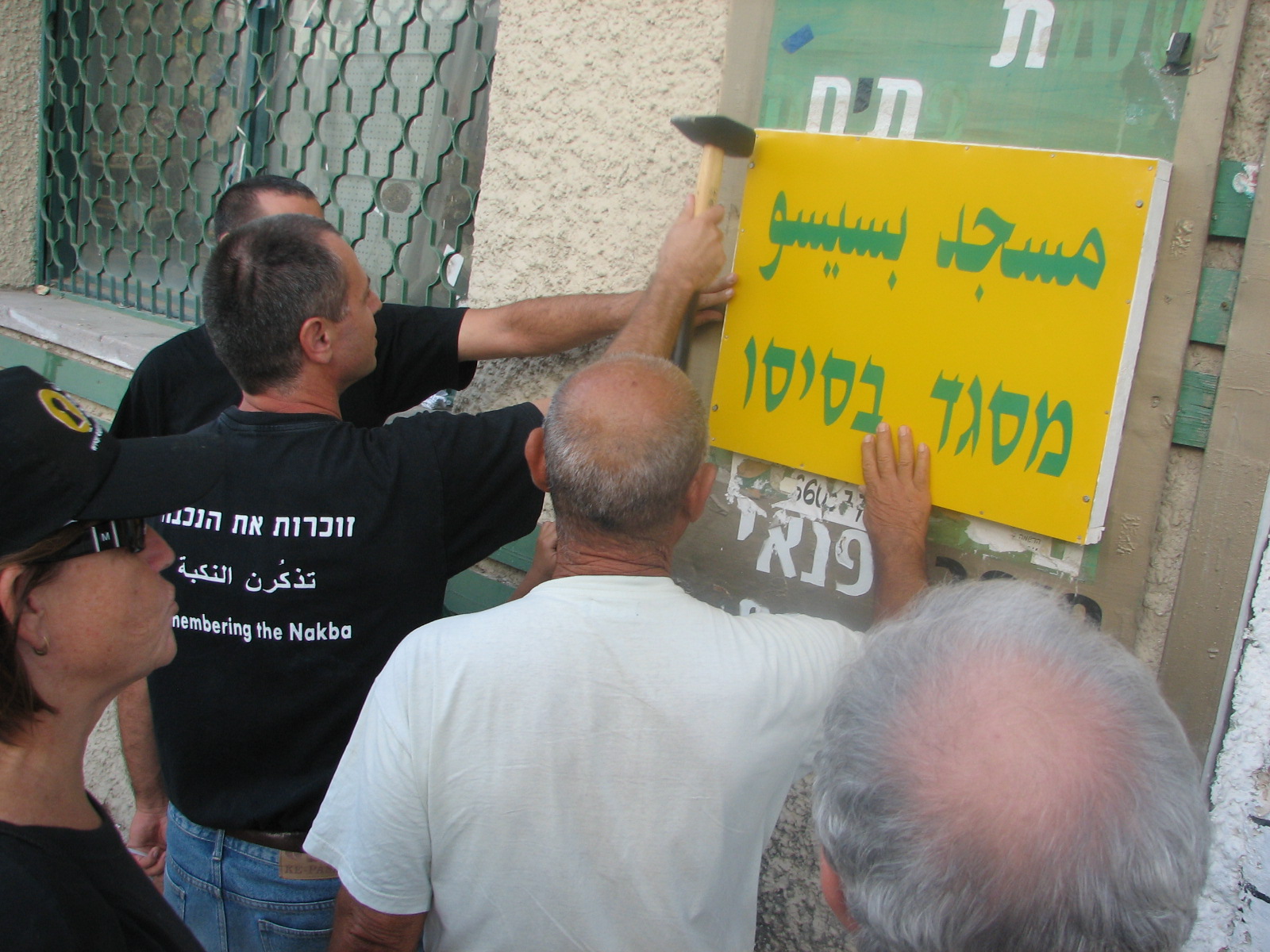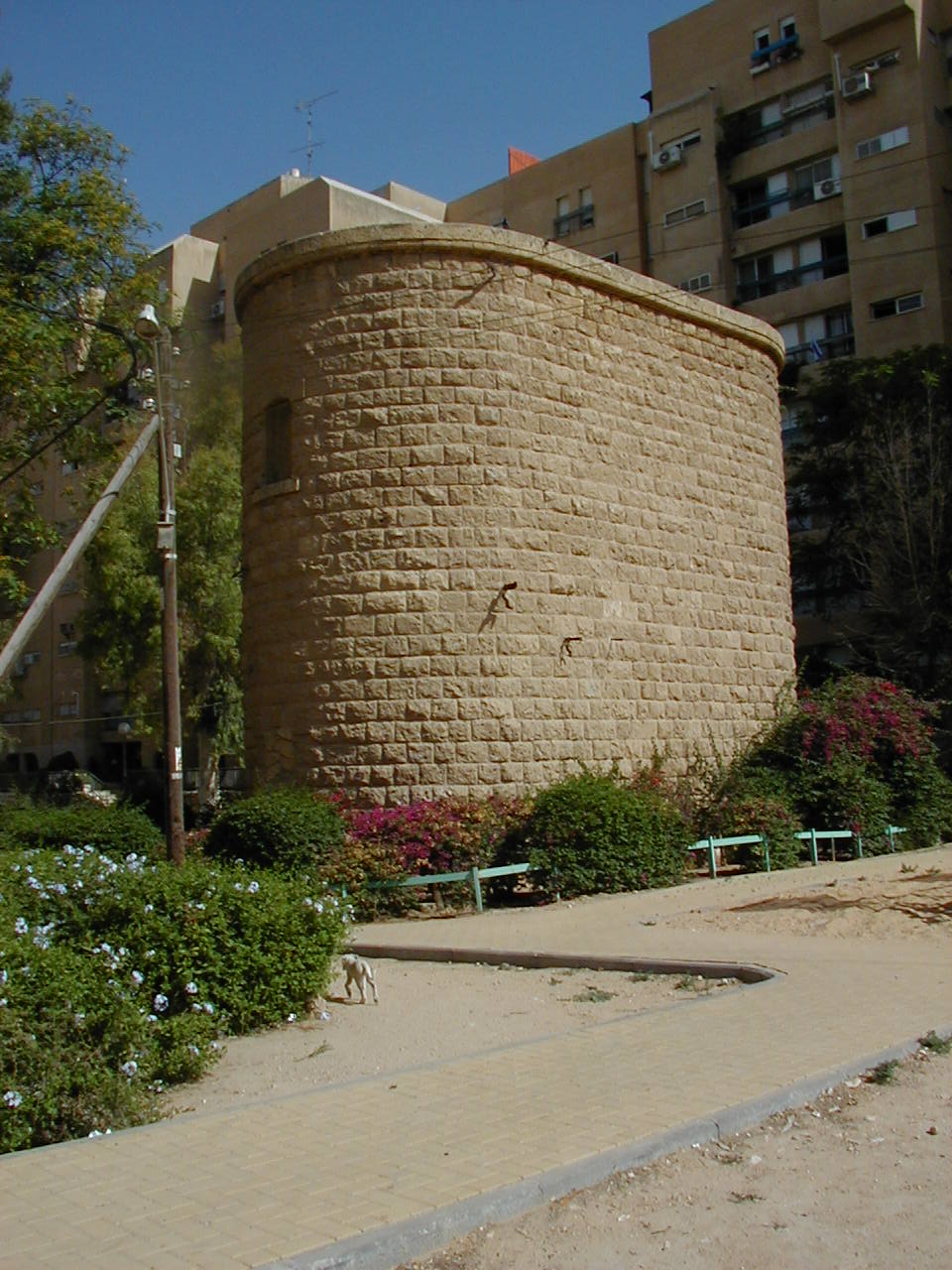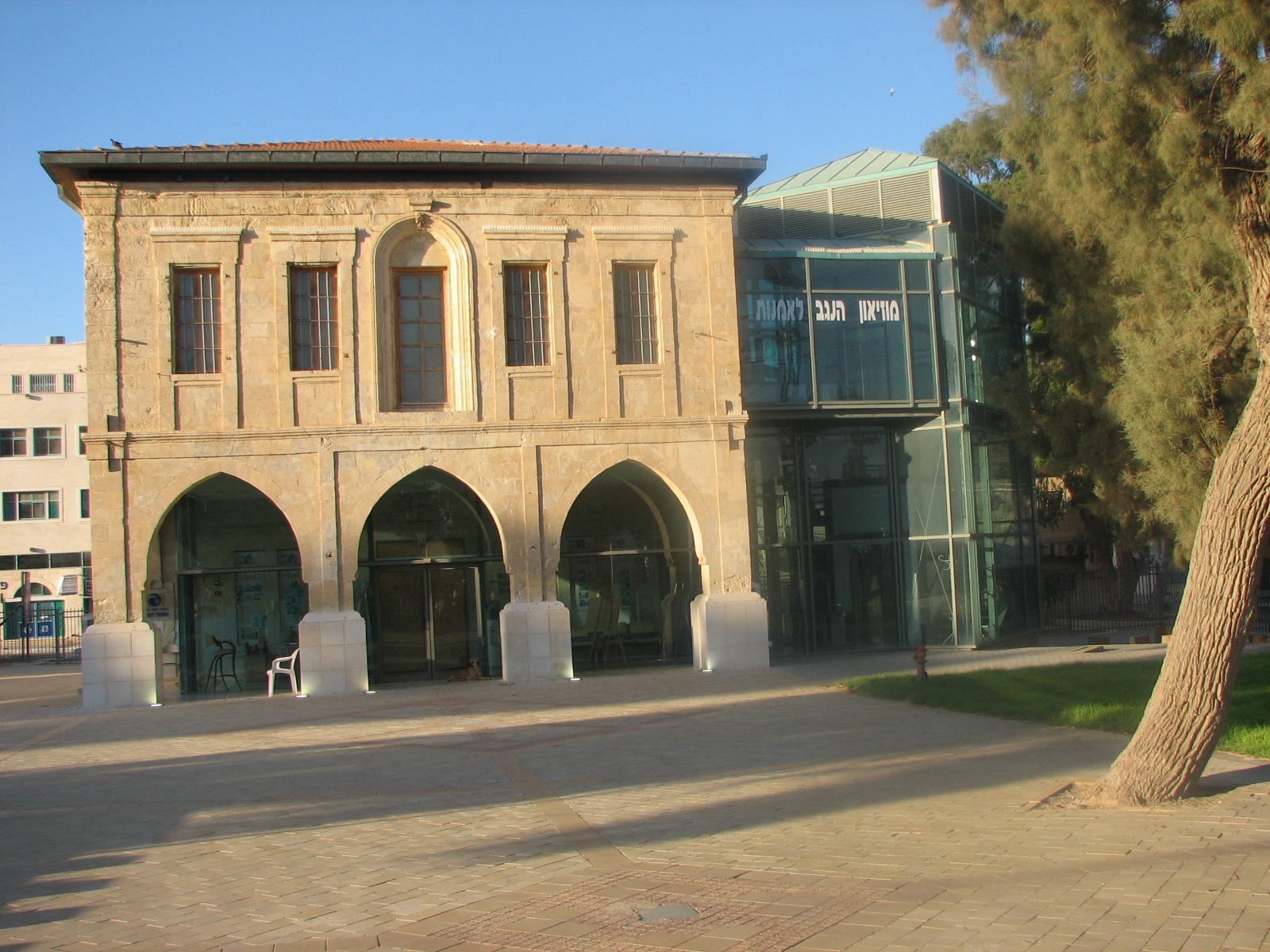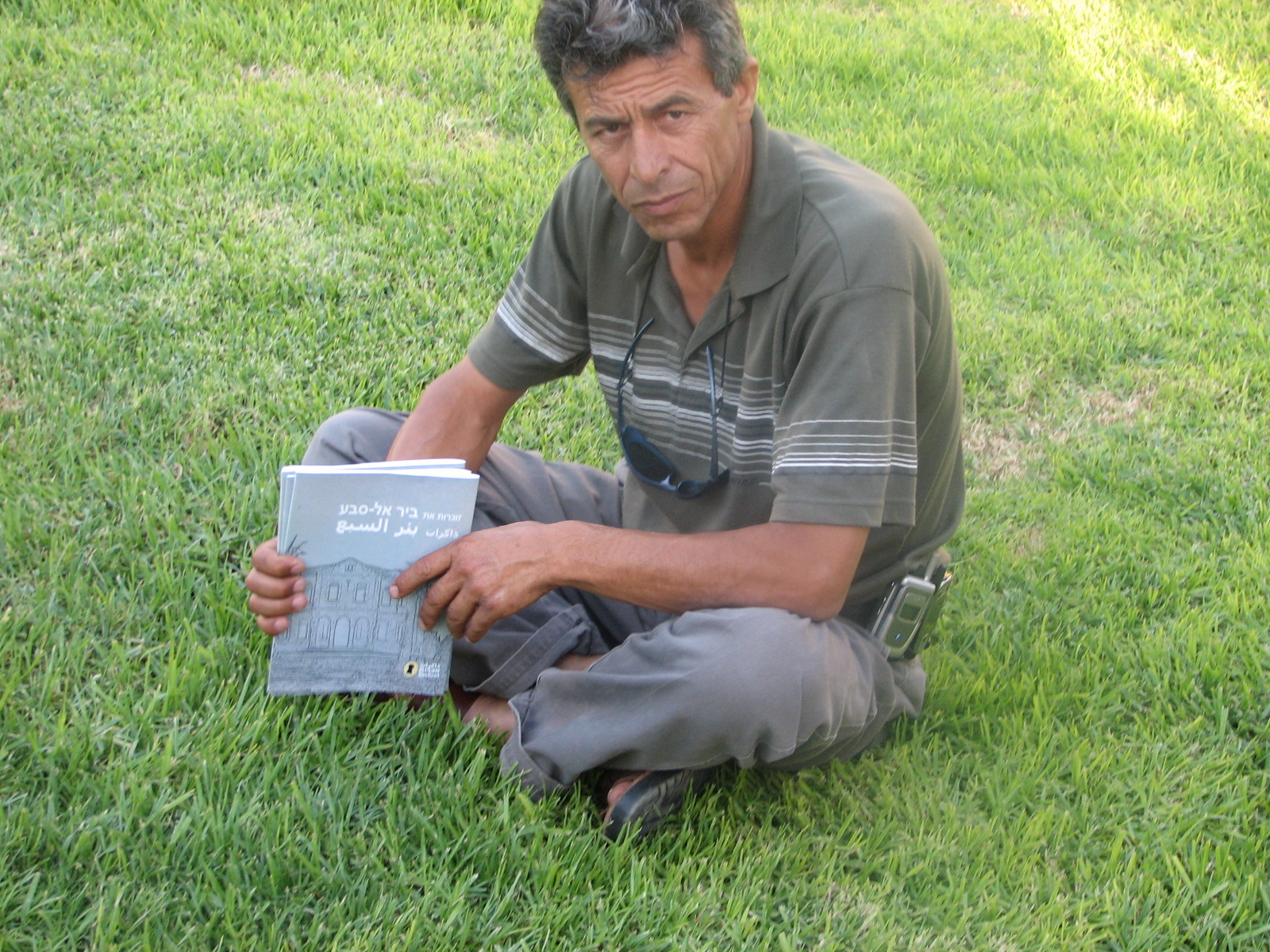There were many British police stations in Palestine , and there were many British soldiers who were without their wives. Not one of them brought their family to live in al-Seba [ Beersheba ]. In my whole life I never saw a British woman who came to visit Palestine .
The governor was Muslim and the officers were Muslims… At every station there were two or three British and the remainder were Arab officers. The governor was an Arab from Jaffa whose name was Aref al-Aref, and there was another governor who was called Abed a-Razaq. I never met a governor or an officer. It was forbidden for women to be seen by men, but I know about them from my father, who passed away.
All the soldiers and officers were Bedouin. The police officers were Bedouin, and so were the officers and the commander. All of them were Muslim Bedouin fellahin [peasants].
We had a guest room in the house, and Aref al-Aref would come to visit my father. My father would sometimes invite the governors to our home, and that way we would see them. Sometimes they would come to us to recruit young men for the army.
My father was called Hajj Ibrahim al-Sana’a. He was the sheikh of his tribe. Here in the Naqab [ Negev ] there were about 70 sheikhs. They would come to us to meet at the al-Seba council, and take care of people’s requests. My father would arrive riding on horseback from the area near Gaza all the way to the meeting of the sheikhs, which was in al-Seba. Some hour and a half [it took him] on horseback.
There were many people living in al-Seba, but the city was small, not like today. We would get on buses to go to Gaza . I would ride on mule-back and take my young son with me to the doctor in al-Seba. In al-Seba there was a hospital, and most of the doctors were Christians from the al-Mufti and Abu Bseiso families. Until today there are houses in Beersheba , like the house of the al-Shewa family, the al-Azazwe family, the Abu Haniya family, the Abu Bseiso family. Many others lived in al-Seba too. We didn’t live long in al-Seba but we let other people use our homes. For example, family members who came to al-Seba for medical treatment – they let them live in our houses, and my father would hold meeting with the sheikhs there.
Under the British our lives were happy. We had a life of comfort, a good life. We reaped and fertilized our crops and worked, we were satisfied. But when the British left Palestine we knew they wanted to transfer her to the Jews. In al-Seba there were some 70 mukhtars [village leaders]. They would come from all over the Naqab in order to meet in al-Seba. When people started selling lands to the Jews, Hajj Amin al-Husseiniyya came to consult with my father on how to prevent the sale of land. They asked people not to sell to the Jews and told them, ‘Tomorrow the Zionists will conquer you.’ Later, Hajj Amin fled because they wanted to kill him. That meeting took place in al-Shariyya in 1938 at the initiative of my father. Hajj Amin brought all the sheikhs from the Naqab in order to have them swear they would not sell land to the Jews. My father gathered all the Muslim fellahin in order to have them meet Hajj Amin. They came from Jaffa and Nazareth and from Jerusalem , and had a large meal, and the women cooked and made coffee. The women would work the land and harvest it, and would work in weaving and knitting. The women worked harder than the men.
Hajj Amin brought a large sword and placed the Koran on top of it and said, ‘Say, ‘I swear not to sell the land and not to betray our honor.’ And in that way he had each make an oath, one by one. They distributed the leftover food to orphans in Gaza . After they took the oath, they sold the lands anyway. Later Hajj Amin fled, and my father was silent and did not say another word on the matter. Unfortunately they sold the lands and betrayed our honor.
Some effendi [Turkish notable] from Gaza named Ibrahim al-Mufti brought my father a gift. He sent him a taxi loaded with rice, sugar and cloth and asked my father to sign a document for him for the benefit of the Jews. My father refused to sign it and told him to go back to Gaza . There were people who sold lands to the Jews. I know of the first one to sell his tribe’s lands to the Jews, according to what I heard. The people of this tribe always would go barefoot, and suddenly they started wearing shoes. Suddenly they had money.
We didn’t live long in al-Seba. We lived on the periphery, but we would go to al-Seba to the hospital for example… In al-Seba we had seven houses. Today the houses are located near the main street. Our houses in al-Seba belonged to my father, Hajj Ibrahim, and to Hajj Abed al-Karim. They would go to their houses from time to time as needed, or when they wanted to host other sheikhs or to hold meetings. The women would go there sometimes to cook and bake.
We lived most of the time here, in Laqye. We had houses here, and all our belongings were here.
The Jews came, took our lands by force, and told us that there was nothing left for us here. They closed down the mosque and barred anyone from entering. The Arabs did not have weapons to defend and fight like the Jews did. Later we lived in Laqye for three years, and then they expelled us to Tel Arad.
On the day the Jews conquered al-Seba, my father went there. He wanted to drink water from a faucet near his house, but the Jew who lived there would not let him do so. My father said to him, ‘You foreigner, I installed this pipe with my own hands, and I have documents that prove that these houses are ours.’ So the foreigner agreed to let my father drink water. How unfortunate that took over this country and would not even let people drink the water from their own houses.
Israel wanted lands without people. The British are the ones who brought the Jews and sold them the land. The Jews would come and inspect the land, and we thought that they were looking for water. We didn’t know that they wanted the land. They would come to a particular site, put up tents, and then leave. We would see the markings left by the tens. Only in hindsight we understood that they were planning to conquer the country.
I would hear about the revolt and about the insurgents. In those days of the revolt there was great chaos. The insurgents would come from the mountain, from Hebron, from Jerusalem , but later they became afraid, the revolt ended, and the British returned to al-Seba. The British ruled the country for 35 years, and then they left. On one of the nights we suddenly saw that the Jews entered al-Seba. They started putting people on trucks and sending them to Gaza . After they expelled the people they settled in the area, and told us: ‘Go to the mountain. If we find anyone left by 8 o’clock tomorrow, we will kill him.’ People started getting on buses and going to Gaza , and there were those who chose to move and live in the desert. The governors of Beersheba , Aref al-Aref and Abed al-Razaq, are the ones who delivered the city into their hands.
The killing and the murders started in the north of the country, later moved westward, and then reached al-Seba. The city surrendered quickly, without war or resistance. The city women would run barefoot, and the blood ran down their legs … and then they expelled the people to the West Bank .
We stayed in al-Laqye because we had land and houses there, and because Gaza was far away from us. The rest went overseas.
Then the mukhtar came and said: ‘Stay where you are, give up your land… no harm will be done to those who surrender. If you surrender, we will give you identity cards. Surrender for the sake of your homeland and for the sake of your children.’
Once they brought a woman and put her in a chair in order to take her photograph and give her an identity card. My father came and said to them, ‘A woman must not be photographed,’ and asked her to get up from the chair. And from then on they started giving women identity cards without photographs. I never had my picture taken except when I needed to so I could go on Hajj [to Mecca ]. After they gave us identity cards we stayed in Laqye for three years. In those years there was tremendous anger at the Jews. They came to my father and told him ‘move to Tel Arad.’ My father said to them, ‘I don’t want Tel Arad. I want to go to Abdullah [King of Jordan],’ and he asked them for permission to leave for . But Abdullah refused us entry, and we stayed some 40 days on the border. All the people went after my father because he was the leader. But then they started to tell him that he needed to return to his country and to live there. And my father decided to return. When we came back here the officers told my father that he must move to Tel Arad. My father and my brother, Mahmid Abu Khlil, said they didn’t want to move to Tel Arad. The army pursued my brother so as to bring him back. They took my father out of the house by force and destroyed the house. The sky was red from the fire and shooting. And all this was to frighten the people. They started beating people and forcing them to take their belongings on their backs. Once, they broke someone’s hand and said to him, ‘Yalla, pick it up! Pick it up!’ They forced him to carry his belongings with a broken hand. And that is how they transferred us from Laqye to Tel Arad.
I remember once they killed 6 people from the al-Shariyya council. Al-Shariyya is near Ashdod, Netivot, near Gaza . The lands belonged to the al-Sana’a tribe. They killed six people so that people would be frightened into leaving.
They burned houses, burned fields, killed men and started to expel people to the streams, and that is how people became afraid and left. My father had a new house with stone facing, and the Jews burned it, and all that remains of it today is two pillars. They also destroyed the palace of Hajj Hassan who fought against the Jews, and expelled him to Gaza . They shot my uncle, Khalil, after he already lost both hands, and there was another one who died while trying to fight. My brother together with Abu al-Walid from Gaza and my uncle, Abed Rabbo, were together in the resistance. My father lost two fingers, but he managed to escape the shooting.
My uncle was the leader of a gang, he built a fortification of sand bags around the palace that they could use to shoot from behind. And they had weapons. And then people told Hajj Hassan, the owner of the palace, to take down the sand bags and disperse the gang and the weapons, because if the Jews came and saw it they would kill him. When my uncle came in the evening and he learned of this, he asked them to leave for Gaza . My mother was their guest and she left together with them. In the morning the Jews came and didn’t find a soul in the house. They found a shepherd and killed him. They thought he was my uncle. But later they arrested my uncle, and he sat in prison for three years. They put him in jail with a mad dog.
There was a brother who worked with a doctor in the hospital in al-Seba, named Sabar. The Jews came and shot him in the stomach.
The Jews would come to arrest people, but my father would tell them that those were poor, miserable people, so that they wouldn’t arrest them. Later they forced us to leave for Tel Arad. We took everything we had with us from home, together with the grain and the sheep.
When they came to expel us to Tel Arad, the Jews encircled Laqye so that we would not run away. There was a Jewish police station here. I remember that the day we fled, my mother left a pot of food cooking, my father pulled me by my hand, and my uncle, Ahmed, held an iron chain, and my hair got caught in the chain.
They pulled us out by force, forced us onto buses, and shot anyone who resisted. They beat us with clubs and killed women and men near the eastern road. The eastern road is the one that leads to Beersheba from the Hebron junction. There were people who departed without a single item from home. There was a family that left their son at home because they were so afraid, and fled.
Twenty days after we moved to Tel Arad my father died there. He died of grief. And we stayed to sow and reap the land. We suffered terribly just to get some water in Tel Arad. We had to go long distances and to climb hills to search for water. They cut off our water and destroyed our wells. The soldiers would come in with tanks and aim them at us, and the people were afraid. I remember that they would enter our houses at night looking under the young children to see if there were weapons in the houses.
They waged a general war against us. Everything was forbidden: onions, oil, chicken… they did not permit anything, and we had to smuggle things in from the West Bank . But when they caught someone smuggling they would kill him. Even sugar was forbidden. I swear, when I gave birth to my son, Abed al-Rahman, my father went to ask for permission from the officer to bring oil to anoint the child. When people saw the tanks coming closer to the area, they would throw the oil away so that they wouldn’t see it. They would even hide the dates in the chicken coops, because it was forbidden.
We lived in Tel Arad for about 25 years. Later they came to Hajj Hassan and said to him: ‘What do you think about leaving together with your tribe for Tel Arad?’ Hajj Hassan said that he wanted to consult with the tribe. The elders said they didn’t want to leave Tel Arad, but the young people said: ‘Sheikh Hassan, it is better to return home even if we eat sand there. We work in the city of Rehovot and drive there every day from Tel Arad, which is 50 kilometers from Beersheba , and it is far. We want to be a little closer.’ We returned to Laqye only in the 1970s. But my children, Aamneh, Abed al-Rahman, Ahmad, Husan and Maryam were born in Tel Arad.
I wish they would return our lands and houses. The Jews tried to bargain with us over their lands and ours, but we refused. They wanted to pay us one dunam in exchange for a hundred dunams that they received. We did not agree. We want our lands back. There is no justice. Today we buy our lands from the Jews… there is no justice. The government wants territory without people. There is no equality. The Jews are liars. They only want the country. They want to erase us. Today they strangle our communities and villages so that we won’t build and expand the villages. We will not be able to fight the Jews. The Jews can expel us and kills us, and we cannot do a thing about it.
My parents hired more than one attorney to return our houses and lands. We have documents and land registry certificates, but the state does not want to return our land to us.

